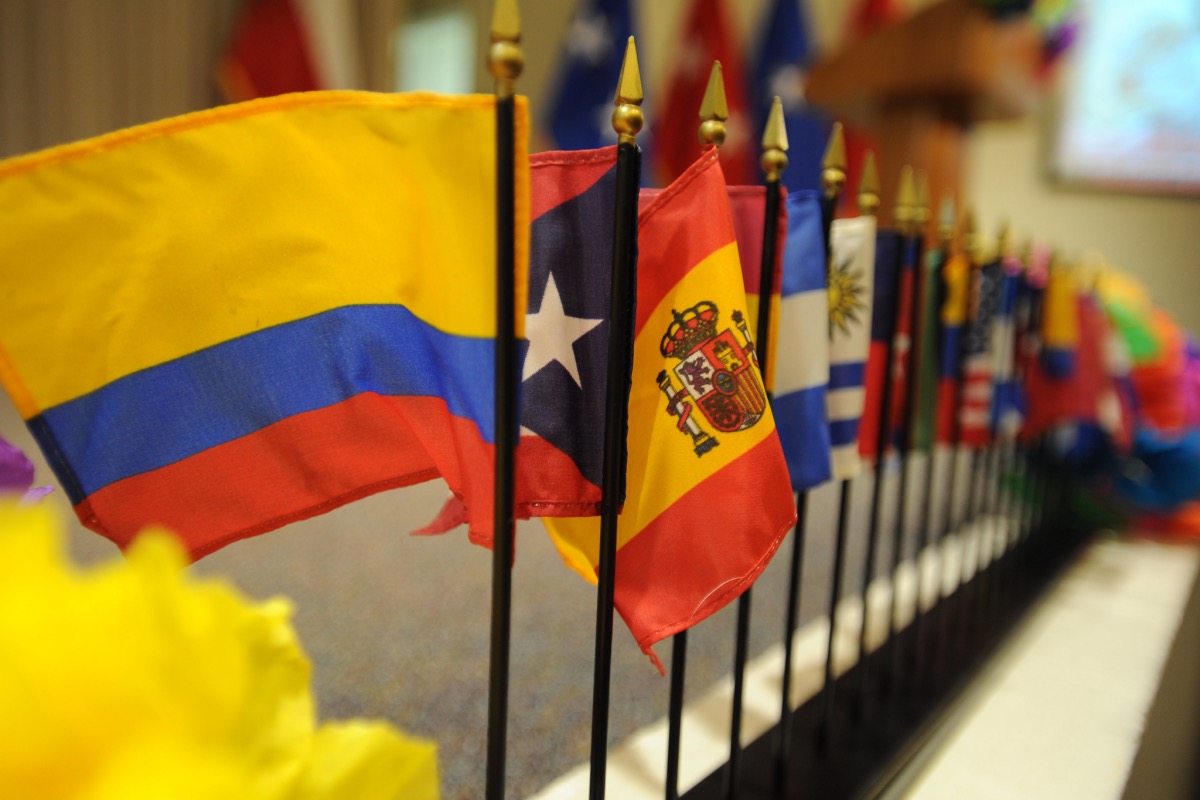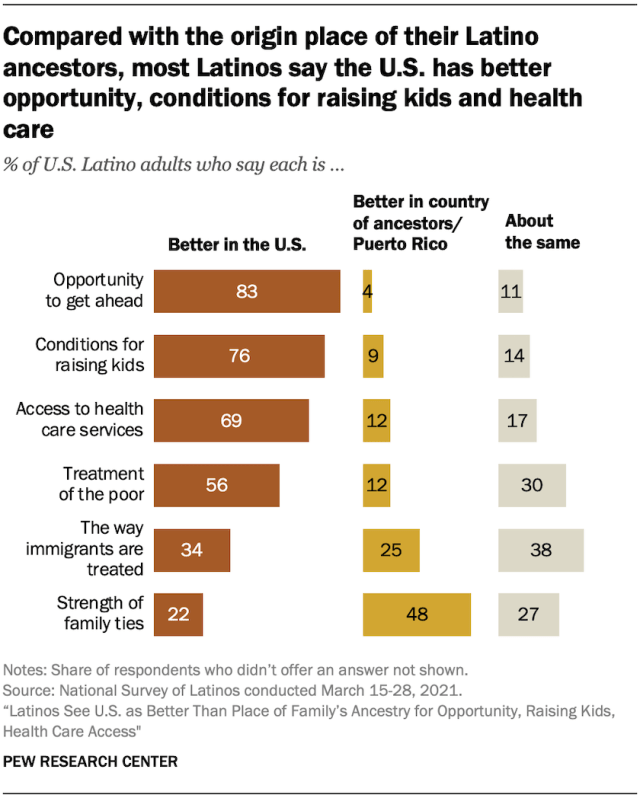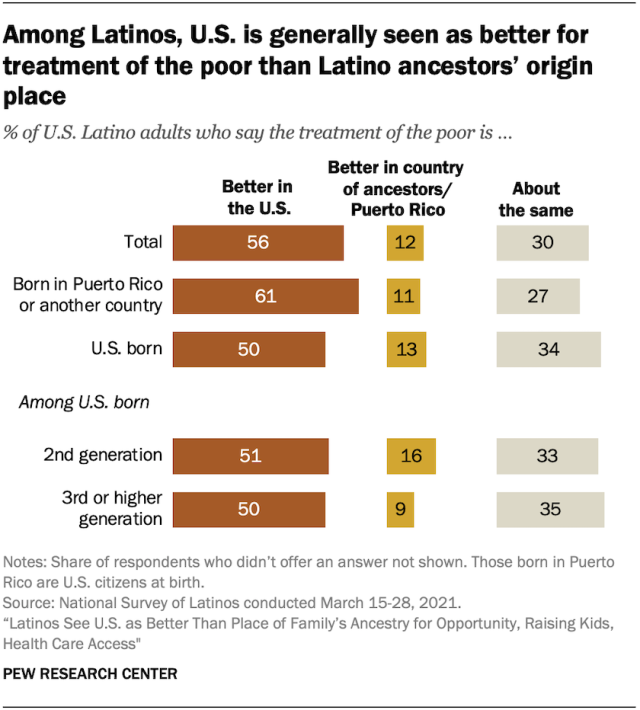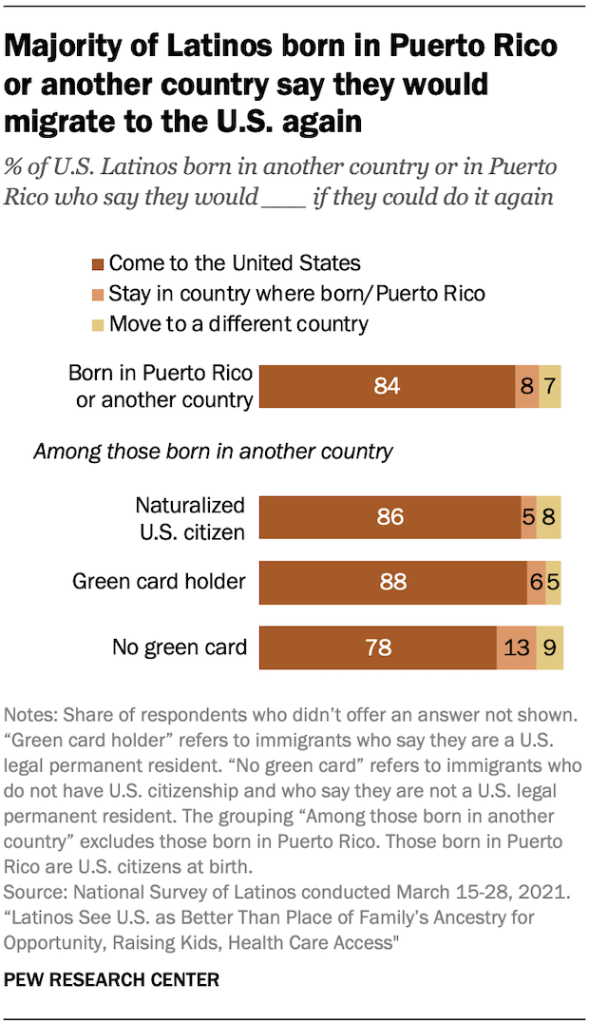

Most Latinos say the United States is generally better than their Latin American homelands, according to the results of a survey published by Pew Research Center on Thursday.
“A strong majority say the U.S. provides more opportunities to get ahead than their ancestors’ place of origin,” reads the report. “Majorities also say the U.S. has better conditions for raising kids, access to health care and treatment of the poor, according to a Pew Research Center national survey of 3,375 Latino adults conducted in March 2021.”


The Latinos surveyed were born in the United States, Puerto Rico, or another country, with large majorities in each group saying life is generally better in America.
Pew asked how the United States compared to Puerto Rico and other countries in terms of opportunity, childrearing, health care, race-based discrimination, and the treatment of immigrants. Answers were categorized by place of birth and generation, down to the “3rd or higher generation,” or the grandchildren of immigrants and later.
Eighty-three percent of Latinos say opportunities for success are better in the United States than in Latin America, with 87 percent of those born in Puerto Rico or another country saying so but only 79 percent of those born in the States believing opportunity is better here than there. Eighty-five percent of second-generation Latino Americans say opportunity is better in the States than in their parents’ birth countries, and only 72 percent of third-generation Latinos believe the same.


A clear minority of Latinos say the United States is better than Latin America in terms of race-based discrimination and the treatment of immigrants.
Only 34 percent of all Latinos surveyed said the treatment of immigrants is better in the United States than in Latin America, which matches the percentage of Latinos born in Puerto Rico who said the same thing and is one point less than that of U.S.-born Latinos. Interestingly enough, opinions on the treatment of immigrants in the United States improve the longer the respondent has lived in the United States and the more secure their status is. More citizens than green-card holders say immigrant treatment is better, more green-card holders than non-green-card holders say treatment is better, and more third-generation Latinos than second-generation Latinos say immigrant treatment is better in the United States.
More Latinos who identify as having lighter skin say the treatment of immigrants is better in the United States than those who identify as having darker skin.
Four in 10 Latinos born in Puerto Rico or another country say racial discrimination is about the same in the United States as it is in their countries of origin, while 26 percent say discrimination based on race or skin color is not an issue in their home country whatsoever—a clear fallacy.


In the end, vast majorities of Latinos of all categories—ranging in the 80 percentiles except among non-green-card holders, at 78 percent—say they would immigrate to the United States all over again if given the choice today.
***
Hector Luis Alamo is the Senior Editor at Latino Rebels and hosts the Latin[ish] podcast. Twitter: @HectorLuisAlamo


